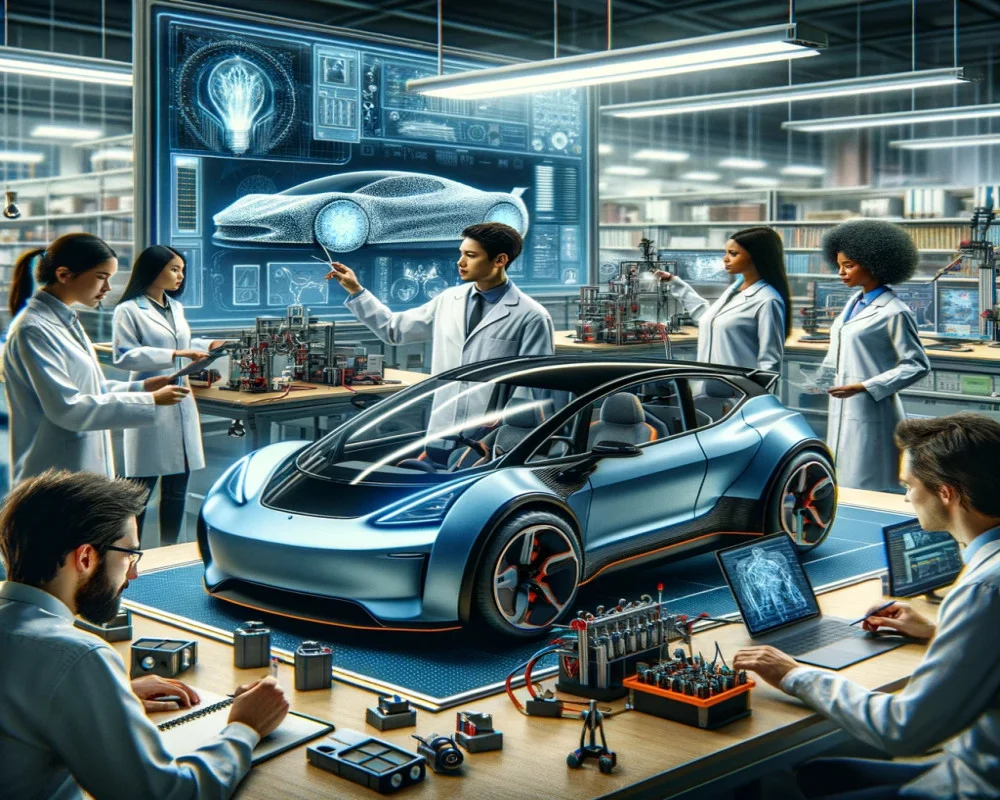Advancing Electric Vehicle Technology Through University Collaboration

by NotedSource
The automotive industry is undergoing a transformative shift with the increasing adoption of electric vehicles (EVs). As companies strive to keep pace with this evolving landscape, many are turning to academia to deepen their understanding of EV technology and its implications for their businesses. Collaborations between companies and academic institutions have become crucial in driving innovation, addressing challenges, and shaping the future of sustainable transportation.
Research and Development Partnerships
Companies recognize the need for cutting-edge research to stay competitive in the rapidly changing EV market. Collaborations with academic researchers offer access to the latest advancements in materials science, battery technology, and electric drivetrain systems. These partnerships often involve joint research projects where companies provide funding and real-world data, while academia brings expertise and a fresh perspective to tackle complex technical challenges.
Talent Development
The EV industry demands a workforce equipped with specialized skills and knowledge. Companies are increasingly engaging with academic institutions to help cultivate the next generation of experts in EV technology. Collaborative programs, internships, and joint research initiatives provide students with hands-on experience, ensuring that they enter the workforce with a deep understanding of the challenges and opportunities in the EV sector.
Knowledge Transfer and Technology Transfer:
Academic institutions serve as reservoirs of knowledge and innovation. Collaborations between companies and academia facilitate the transfer of knowledge and technologies from research labs to industry applications. This exchange is essential for companies looking to leverage the latest breakthroughs in EV technology, whether it be advancements in battery chemistry, energy storage, or power electronics.
Addressing Sustainability Challenges:
As the world pivots towards sustainable practices, companies are partnering with academia to address environmental challenges associated with EV technology. Research initiatives focus on developing more sustainable materials for batteries, improving recycling processes, and assessing the overall environmental impact of EV production and usage. By collaborating with experts in environmental science and engineering, companies can ensure that their EV initiatives align with broader sustainability goals.
Policy and Regulatory Insight
The transition to EVs is not only a technological shift but also involves navigating complex regulatory landscapes. Companies are partnering with academic institutions to gain insights into policy developments, regulatory frameworks, and industry standards related to EVs. These collaborations enable companies to proactively adapt to changing regulations, ensuring compliance and strategic alignment with evolving market conditions.
–
Collaborations between companies and academia in the realm of electric vehicle technology are instrumental in driving innovation, addressing challenges, and shaping the future of sustainable transportation. These partnerships go beyond the traditional research and development model, encompassing talent development, knowledge transfer, sustainability efforts, and regulatory insights. As the electric vehicle market continues to expand, these collaborative efforts will play a pivotal role in shaping the industry and accelerating the transition to a more sustainable and electrified future.